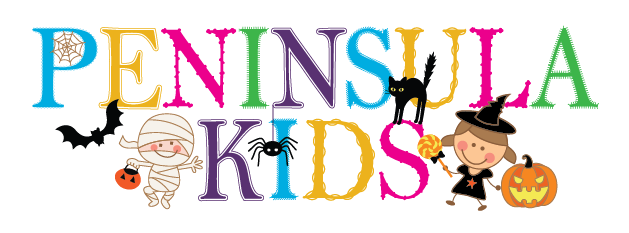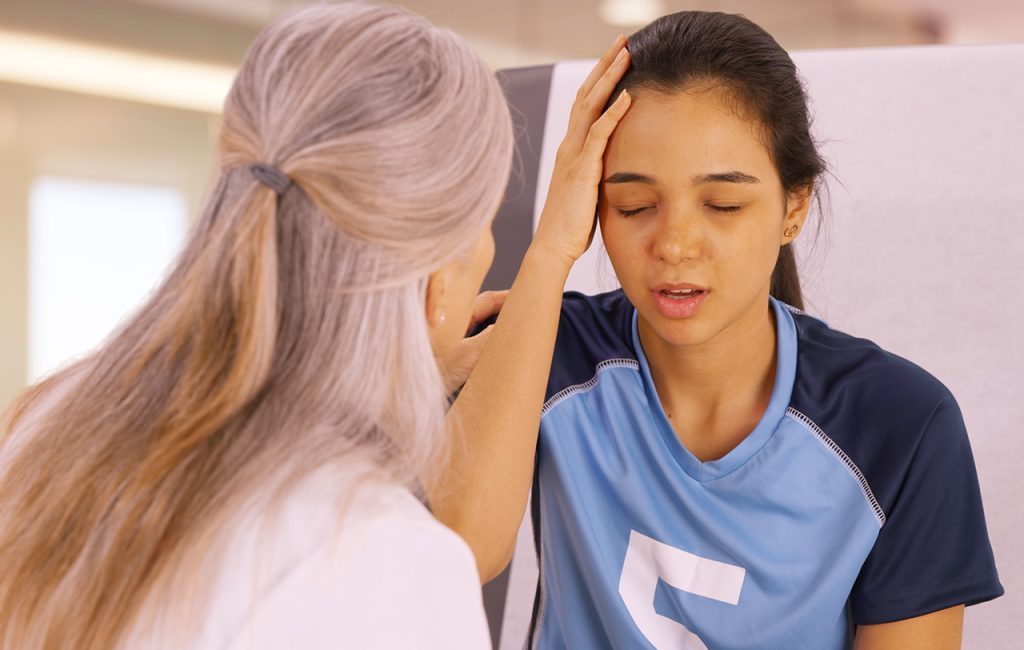What is concussion?
Concussion is a minor traumatic brain injury usually caused by a blow to the head. Concussion happens when the brain hits the inside of the skull. Concussion can also result from a sudden change in motion. This is why concussion is a common sporting injury, especially in contact sports, such as boxing, Australian rules football, rugby league and rugby. Activities with a high risk of falls, such as horse riding, cycling, and skiing, are also common causes of concussion. Most people who have concussion will recover on their own within 2 weeks, but complications can occur. It is important that people with concussion rest and that their recovery is monitored with follow-up visits to a health professional.
The most common symptoms of concussion are confusion and/or memory loss about the event that led to the head injury, but other common early symptoms of concussion include headache, dizziness, vertigo, nausea and/or vomiting, lack of awareness of your surroundings, vision, and speech difficulties.
Concussion does not always cause a person to become unconscious. More subtle signs of concussion may include difficulty concentrating, sensitivity to noise or light, behavioural or emotional changes, feeling dazed, fatigue.
What is laryngitis?
Laryngitis occurs when the voice box (larynx) becomes inflamed and the vocal cords become swollen and can’t vibrate properly. This causes someone to sound hoarse or to lose their voice. Normally people recover from laryngitis without treatment. It is commonly caused by a viral infection, such as a cold or flu. Bacterial infection may also cause laryngitis, although this is rare. You can also get laryngitis if you strain or overuse your voice by yelling or after long periods of talking, shouting or singing.
www.healthdirect.gov.au
Who are all the people caring for my kid’s teeth at the orthodontic clinic?
The orthodontic clinic is a busy place and there is a highly trained team of staff working together to create time efficient personalized patient care. Our staff consists of:
• Reception and administration staff
• Treatment coordinator
• Dental nurse/ assistant
• Oral health therapist
• Orthodontist
• Oral maxillofacial surgeon
The orthodontist is a specialist dentist, they have completed a Master’s degree, specifically in orthodontics, after spending at least a few years practicing general dentistry. Orthodontists have studied at university for a minimum of 8 years. They diagnose and treatment plan each patient.
Also seen working with the orthodontist is an oral health therapist who are university and clinically trained with a Bachelor of oral health. An oral health therapist is commonly seen in a general dental clinic’s doing checkups, cleans, x-rays, fillings, etc. In orthodontic clinics they are carefully trained by the orthodontist to work alongside them to complete the treatment.
Dental assistants (DAs) primarily assist the orthodontists and oral health therapists to ensure our appointments run smoothly. Many dental assistants complete additional training so that they are qualified to do more than chairside assisting including clinical photography and x-rays.
If you or your child needs dental surgery, they can be referred to an oral and maxillofacial surgeon or a Paediatric dentist. They are highly qualified professionals with degrees in both general dentistry as well as in their specialist fields.
Other additional roles within the clinic include treatment coordinators, receptionists, and lab and administration staff.
We recommend that all our patients continue regular dental visits with their general dentist throughout orthodontic treatment.
Catherine Bradbrook
Oral Health Therapist
Bachelor of Oral Health (BOH)
Peninsula Orthodontics
134 Tanti Avenue, Mornington

